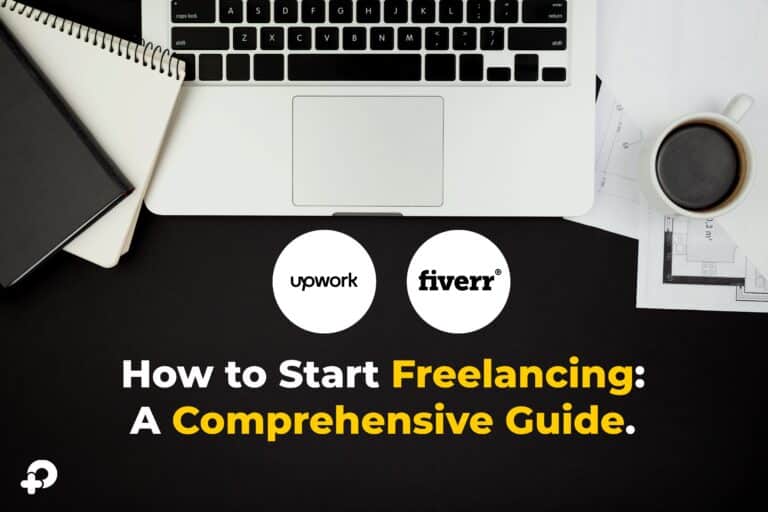Table of Contents
- Introduction
- What is freelancing?
- Benefits of freelancing
- Challenges of freelancing
- Identifying Your Niche
- Leveraging your skills and passions
- Market research and demand analysis
- Creating a unique selling proposition
- Building Your Portfolio
- Showcase your best work
- Offering free or low-cost services
- Leveraging online platforms
- Creating a Professional Online Presence
- Building a website
- Social media profiles
- Online profiles on freelancing platforms
- Setting Your Rates
- Researching industry standards
- Considering factors for pricing
- Negotiation skills
- Finding Your First Clients
- Networking and building relationships
- Cold outreach and direct contact
- Utilizing freelancing platforms
- Managing Your Time and Finances
- Time tracking and productivity tools
- Financial planning and budgeting
- Work-life balance and avoiding burnout
- Continuously Learning and Growing
- Staying updated with industry trends
- Taking courses and workshops
- Seeking feedback and improving your skills
- Building a Personal Brand
- Developing a consistent online presence
- Sharing your expertise through content creation
- Building relationships with other freelancers and industry professionals
- Handling Legal and Administrative Tasks
- Setting up a business entity
- Obtaining necessary permits and licenses
- Managing taxes
- Overcoming Challenges and Building Resilience
- Addressing irregular income and isolation
- Building a support network and practicing self-care
- Setting realistic goals and maintaining motivation
Introduction
Freelancing offers the freedom and flexibility to work on your terms, but it also requires careful planning and preparation. This comprehensive guide will give you the essential steps to start your freelancing journey.
1. Identifying Your Niche
Before diving into the freelancing world, it’s crucial to identify your niche. This involves leveraging your skills and passions to find a market where you can excel. Conduct thorough market research to assess the demand for your services and identify potential clients. Creating a unique selling proposition will help you stand out from the competition and attract clients.
2. Building Your Portfolio
A strong portfolio is essential for attracting clients. Showcase your best work, whether it’s from previous projects or new pieces you’ve created. Consider offering free or low-cost services to build your portfolio and gain testimonials. Additionally, leverage online platforms like Behance, Dribble, or GitHub to showcase your work to a wider audience.
3. Creating a Professional Online Presence
In today’s digital age, a professional online presence is crucial for freelancers. Build a website that showcases your portfolio, services, and contact information. Create profiles on relevant social media platforms to connect with potential clients and industry professionals. Additionally, set up profiles on freelancing platforms such as Upwork, Freelancer, Fiverr, Guru, Toptal, and PeoplePerHour to increase your visibility and attract clients.
4. Setting Your Rates
Determining your rates is a critical step in freelancing. Research industry standards to understand competitive pricing for your services. Consider factors such as your experience, location, project complexity, and client requirements when setting your rates. Be prepared to negotiate your rates with clients and demonstrate the value you bring to the table.
5. Finding Your First Clients
Building a client base takes time and effort. Networking is essential in the freelancing world. Attend industry events, join online communities, and connect with potential clients through social media. Cold outreach can also be effective, but be respectful and personalized in your approach. Utilizing freelancing platforms can help you connect with clients who are actively seeking your services.
6. Managing Your Time and Finances
Effective time management and financial planning are crucial for freelancers. Use time tracking tools to monitor your productivity and ensure efficient use of your time. Create a budget to track your income and expenses, and set aside funds for taxes and savings. Maintaining a work-life balance is essential to avoid burnout and ensure long-term sustainability in your freelancing career.
7. Continuously Learning and Growing
The freelancing landscape is constantly evolving, so it’s essential to stay updated with industry trends and new technologies. Invest in your professional development by taking courses and workshops to enhance your skills. Seeking feedback from clients is valuable for identifying areas for improvement and refining your services.
8. Building a Personal Brand
A strong personal brand can help you stand out in the competitive freelancing market. Develop a consistent online presence and share your expertise through content creation, such as blog posts or social media updates. Building relationships with other freelancers and industry professionals can also help you expand your network and opportunities.
9. Handling Legal and Administrative Tasks
As a freelancer, you’re responsible for handling various legal and administrative tasks. This includes setting up a business entity, obtaining necessary permits and licenses, and managing your taxes. Consider consulting with a legal professional or accountant for guidance on these matters.
10. Overcoming Challenges and Building Resilience
Freelancing can come with its own set of challenges, such as irregular income, isolation, and self-doubt. It’s essential to develop resilience and strategies to overcome these challenges. Building a strong support network, practising self-care, and setting realistic goals can help you navigate the ups and downs of freelancing.
Conclusion
Freelancing offers the freedom and flexibility to work on your own terms, but it requires dedication, planning, and perseverance. By following these steps and continuously learning and growing, you can build a successful and fulfilling freelancing career. Remember, success in freelancing comes from identifying your niche, building a strong online presence, finding clients, and effectively managing your time and finances.




